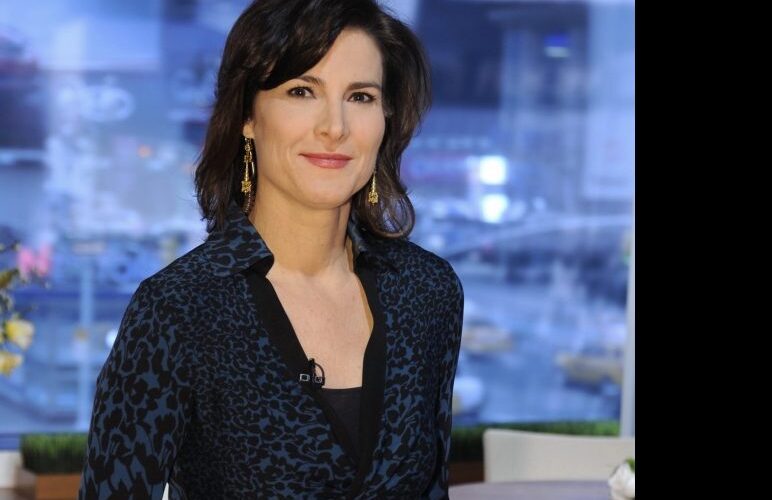After two Columbia University presidents resigned in quick succession since campus protests began against Israel’s campaign in Gaza, the Board of Trustees is playing it safe and tapping one of their own to lead through federal funding negotiations with the Trump administration.
The board late last week unexpectedly elevated one of its two co-chairs, Claire Shipman, as acting president. While not unheard of, experts said it is unusual for a trustee to take the helm of a university, with the move being seen as emblematic of Columbia’s precarious situation.
After the federal government cut $400 million in grants and contracts, saying the university had not done enough to protect Jewish students, Columbia is struggling to navigate between President Trump’s demands and the preservation of the school’s independence.
“Certainly, it is evidence that Columbia now is beyond skittish,” said Ann Marcus, professor and director of The Steinhardt Institute for Higher Education Policy at New York University. “The trustees likely don’t want to take risks about an interim president. Shipman is the trustee insider.”
Shipman, 62, a two-time Columbia alumna, is the author of women’s leadership books and former television journalist. She will serve in the post until the board can hire a permanent successor to former president Minouche Shafik, who resigned in August.
Shafik, who came under fire for her handling of the protests and their fallout, was replaced on an interim basis by Katrina Armstrong, who is returning to lead Columbia’s medical center. Armstrong stepped down following the university’s decision to give into Trump’s preconditions in a bid to recoup the canceled federal grants and contracts over antisemitism allegations. Those funds have yet to be restored.
“Ornamental language can’t disguise the fact that this is a precarious moment for Columbia University,” Shipman said in an email Monday to students and faculty. “In serving our community and navigating what’s to come, I pledge to be as transparent as possible, and to work as hard as I can to do right by a place that is so critical to all of us, and to the world.”
The college president’s last-known address was in Washington, D.C., according to public records. Columbia would not reveal if Shipman has or will move to New York, saying only that she will be on campus.
Shipman, who was raised in Columbus, Ohio, attended various state schools before transferring to Columbia the first year it admitted women, according to a 2002 alumni magazine interview, which traced her rise from “unpaid intern to television personality earning in the neighborhood of $700,000 annually.” She studied Russian and graduated in 1986.
She went on to enroll in Columbia’s international affairs school, but with one semester remaining, took a job at CNN, where she covered the student-led Tiananmen Square protests and the collapse of the Soviet Union. She returned to finish her master’s degree in 1994, and spent much of her career at ABC and NBC News covering the White House.
Shipman joined the Board of Trustees in 2013 and a decade later, became one of two co-chairs. In that role, she joined then-President Shafik in testifying before Congress on their efforts to combat campus antisemitism:
“I can tell you plainly that I am not satisfied with where Columbia is at this moment,” she said last April. “I am dedicated to addressing these concerns.”
In her remarks, Shipman said she met weekly last spring with the leadership of Hillel, the Jewish campus organization that offers services for students away from home. After her appointment, its director, Brian Cohen, praised Shipman, saying she has “consistently demonstrated concern for the well-being and needs” of Jewish students.
Michael Thaddeus, a math professor and vice-president of a Columbia faculty group suing the Trump administration to restore the federal funding, expressed concerns that Shipman did not have a background in academia, especially in knowing how to reach out to a broad group of discontented students.
“In a well-run institution, whether it’s a university or a corporation, there should be some separation between the executive leadership and the board. And I think in the corporate world also, it’s pretty unusual for a trustee to step in and become an executive,” he said.
Nonetheless, Thaddeus continued, “I’m just glad that someone is willing to do this job.”
“Dealing with the current federal government is an almost impossible task,” he said. “I wish her well. I wish her courage, but our senior leadership really needs all the courage they can get right now.” He called on her to join their lawsuit.
Shipman has two college-aged children with one of her ex-husbands, Jay Carney, who served as President Obama’s press secretary from 2011 to 2014. They live in Washington, D.C. and attend Carney’s alma mater, Yale University, according to their social media accounts.
Originally Published:








